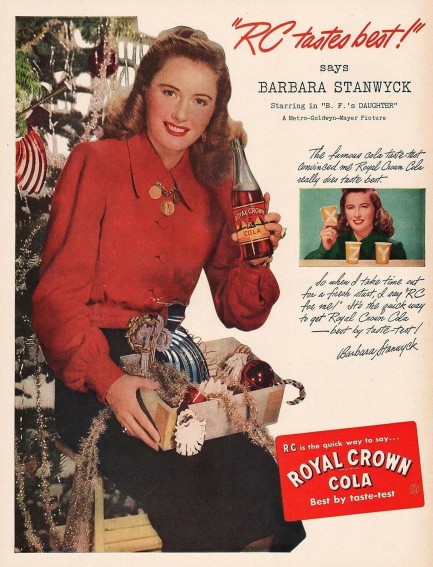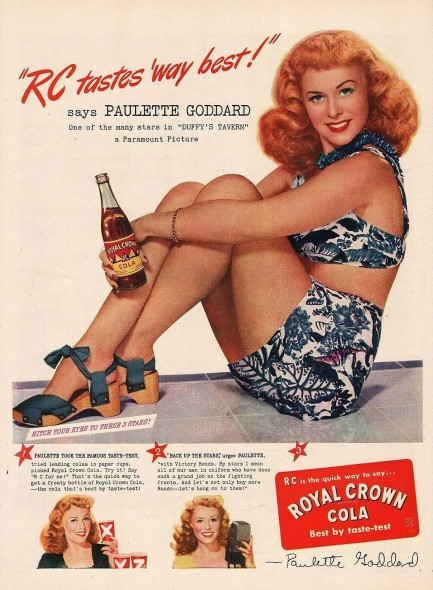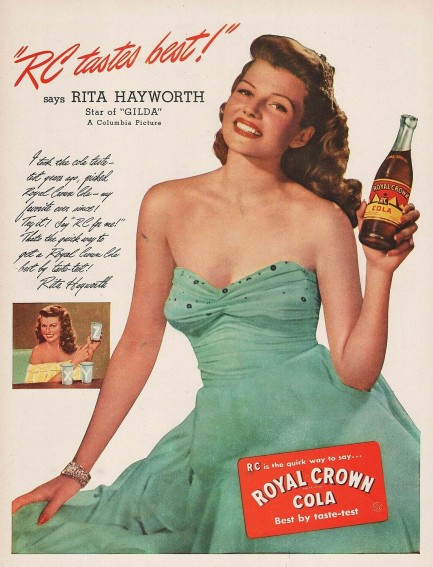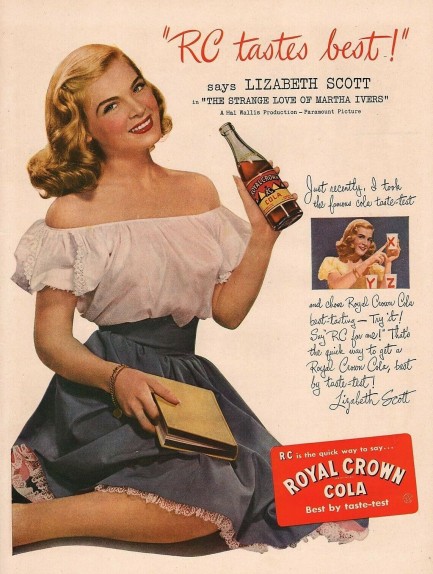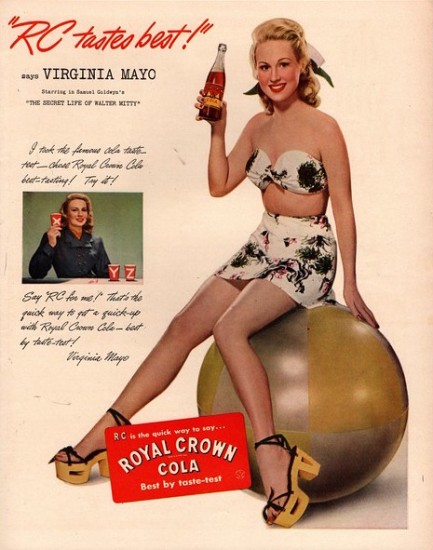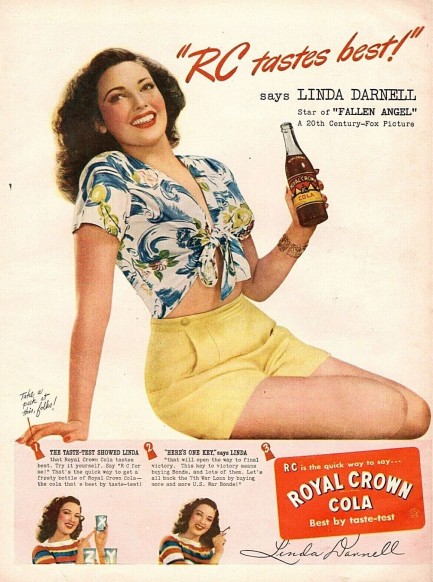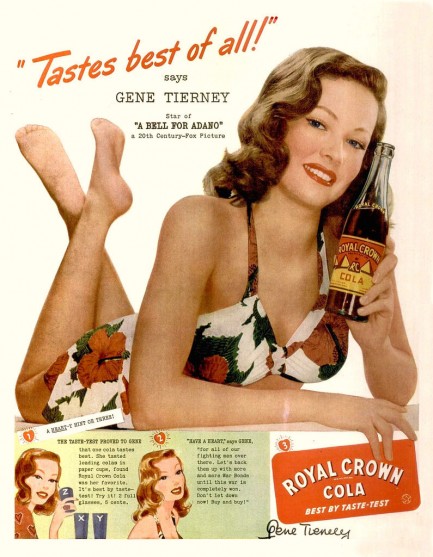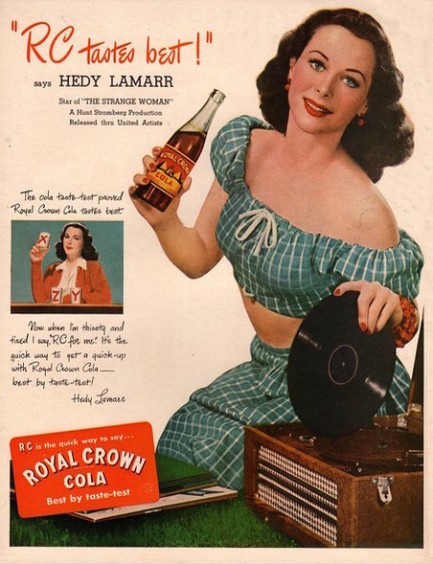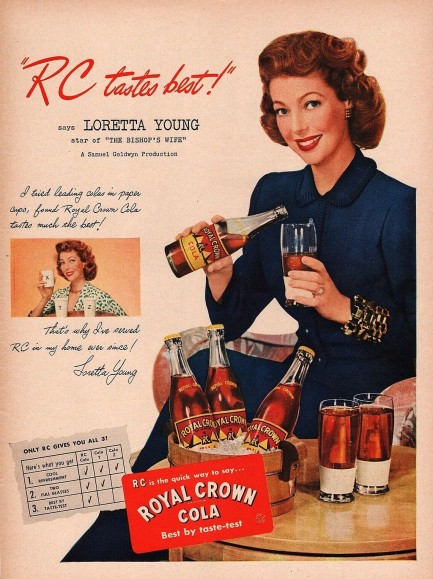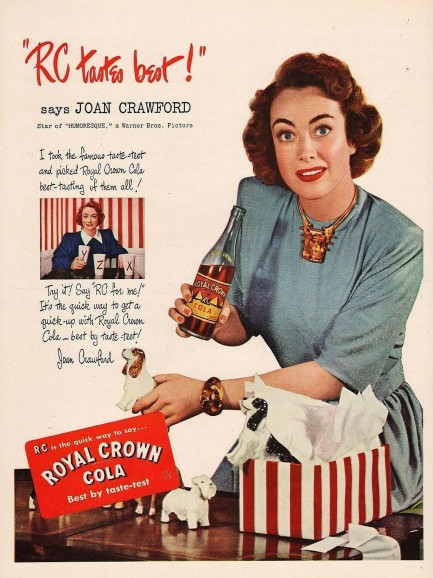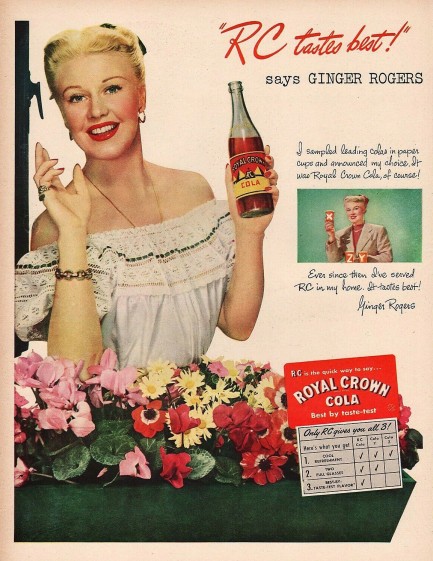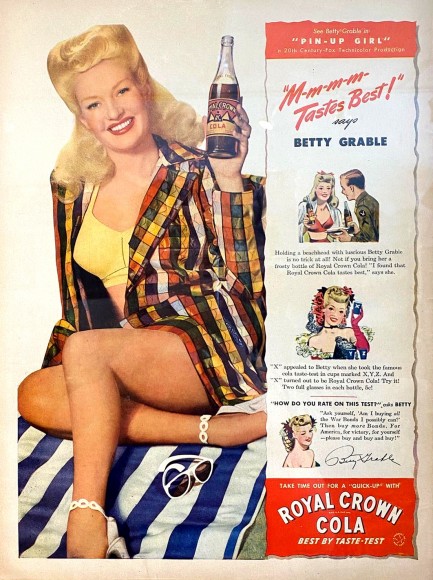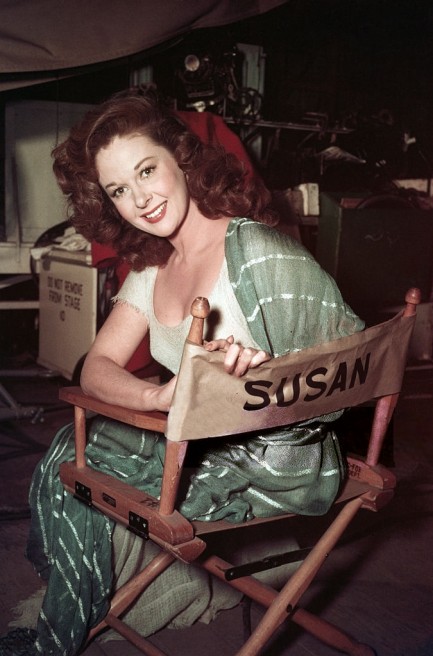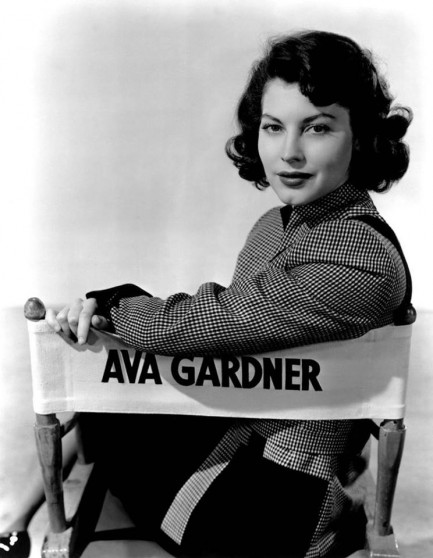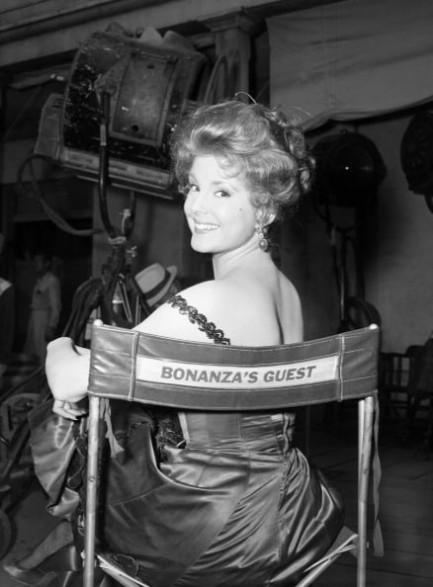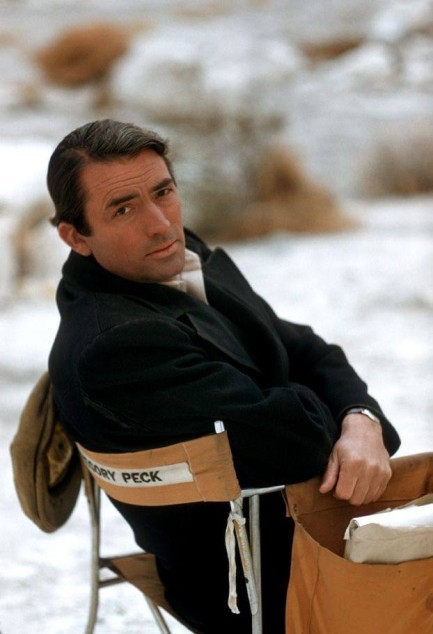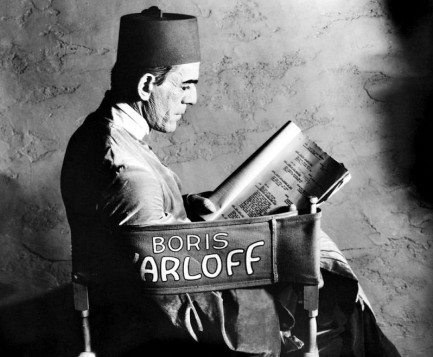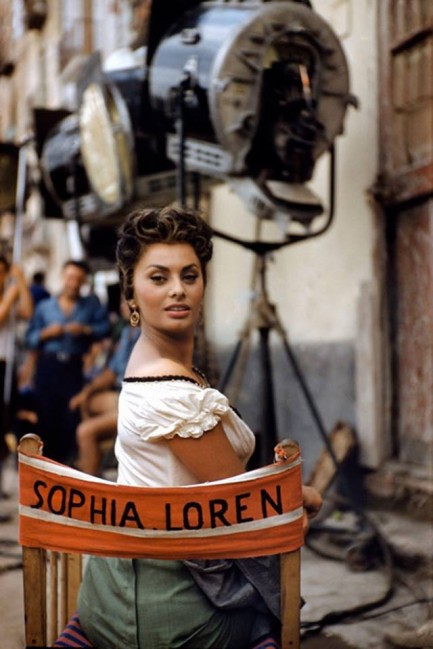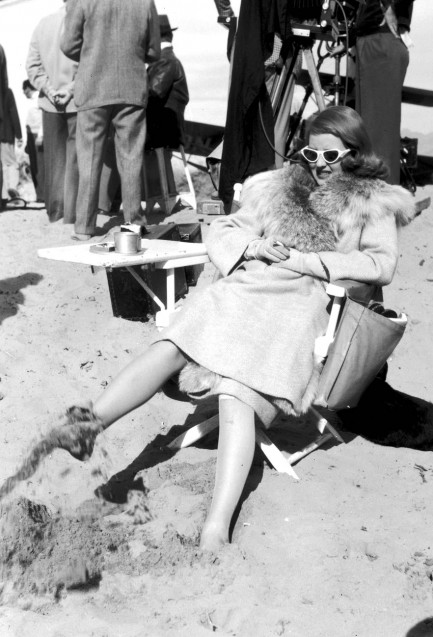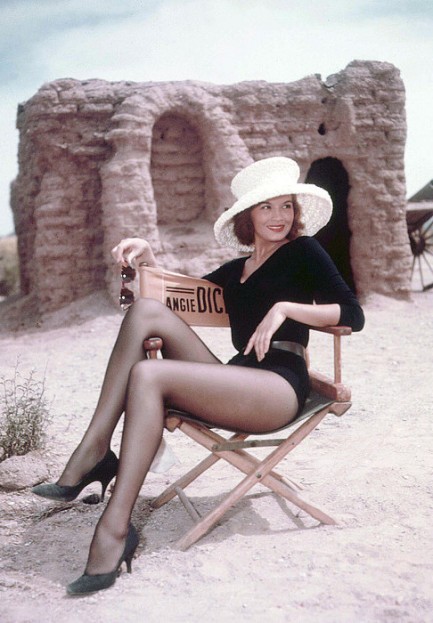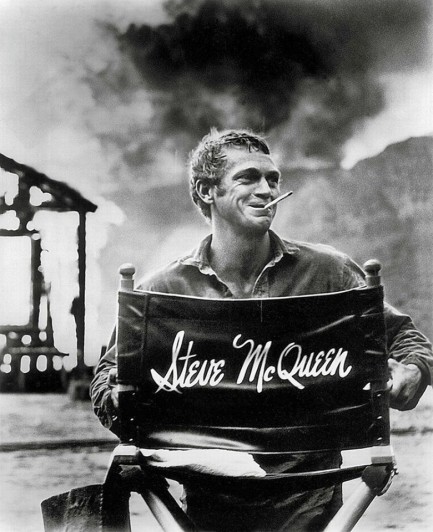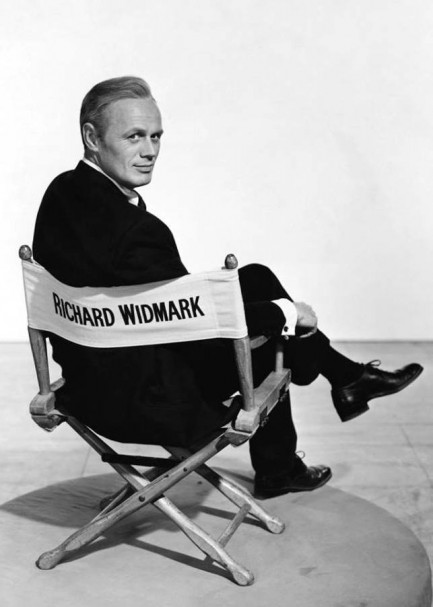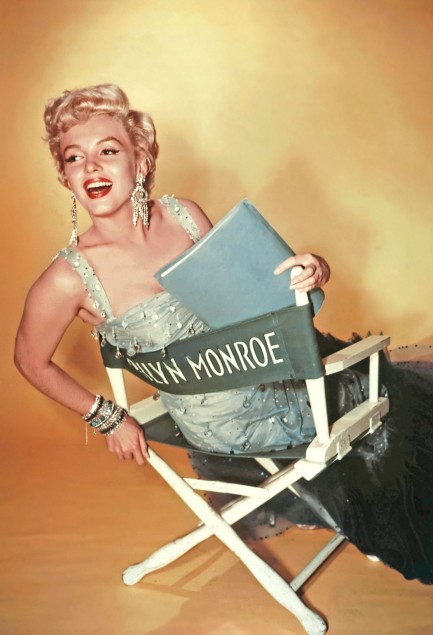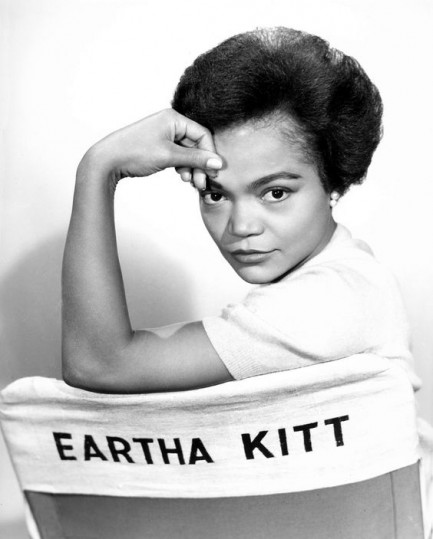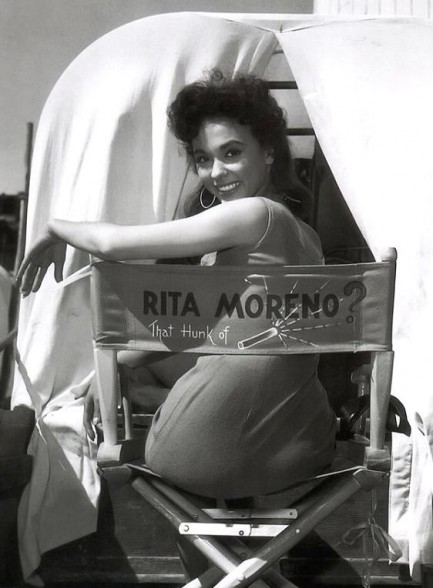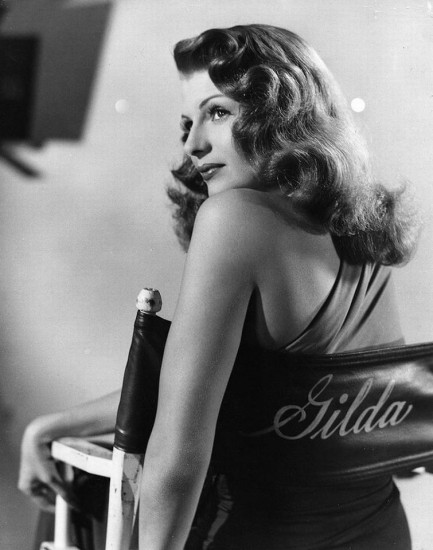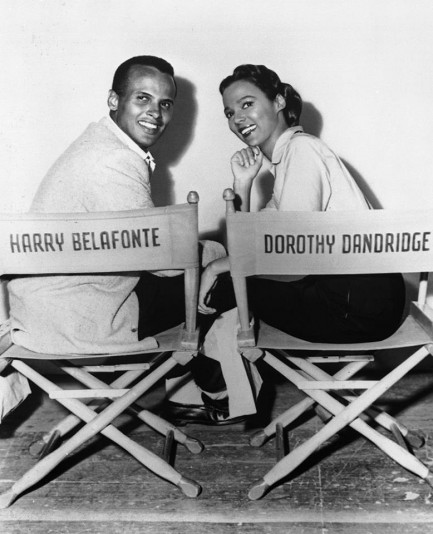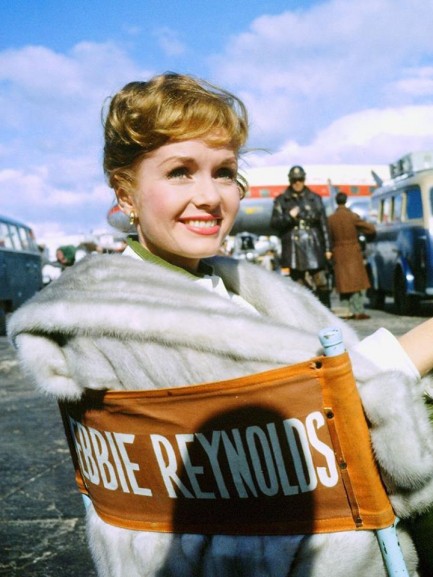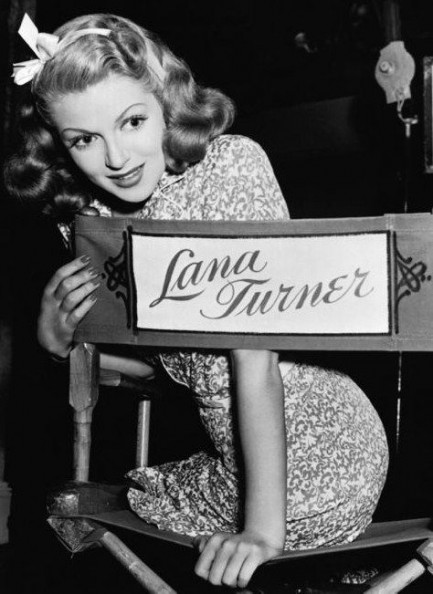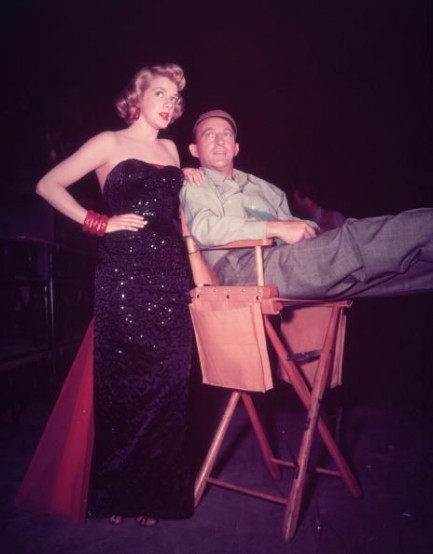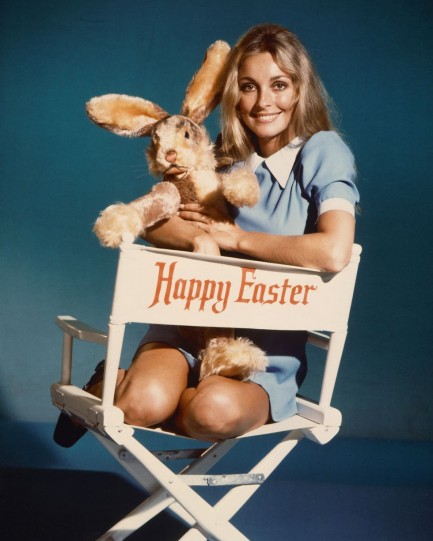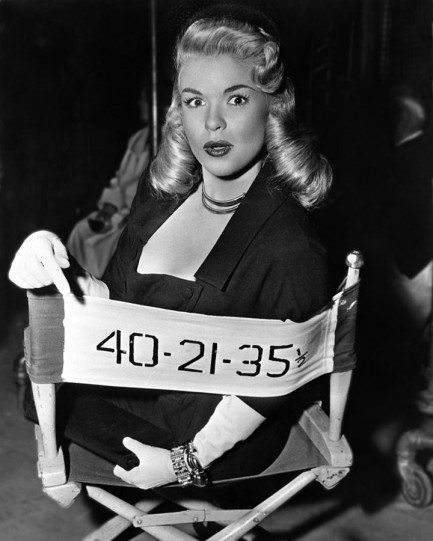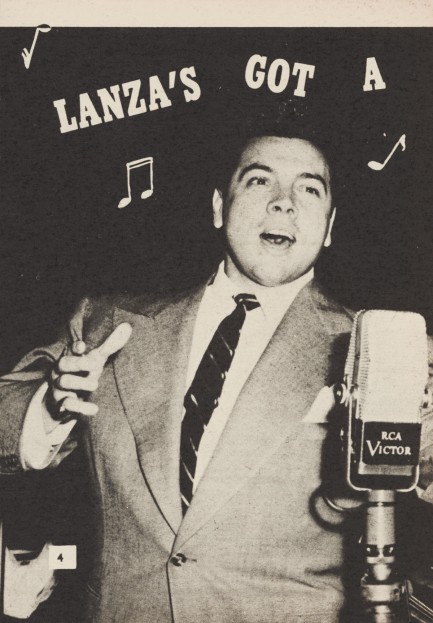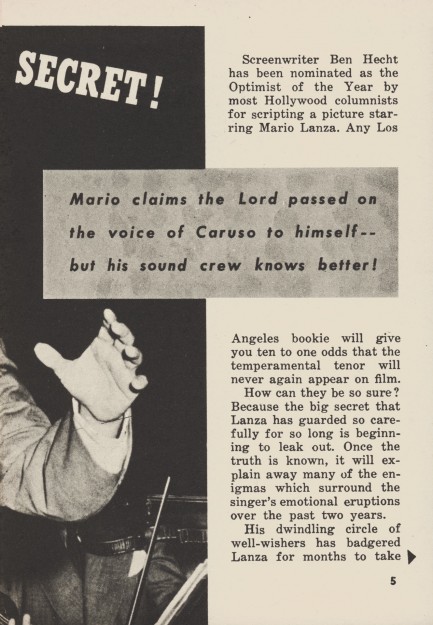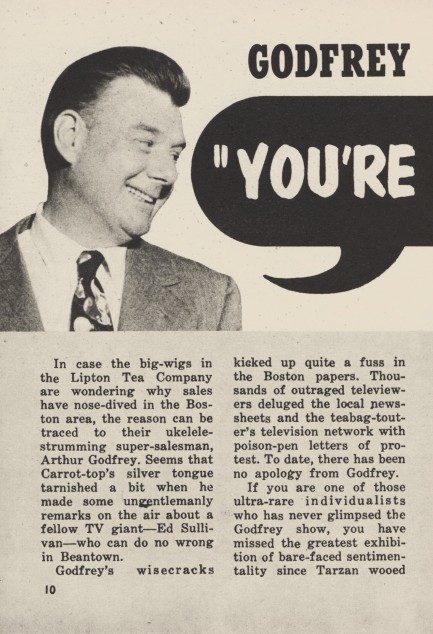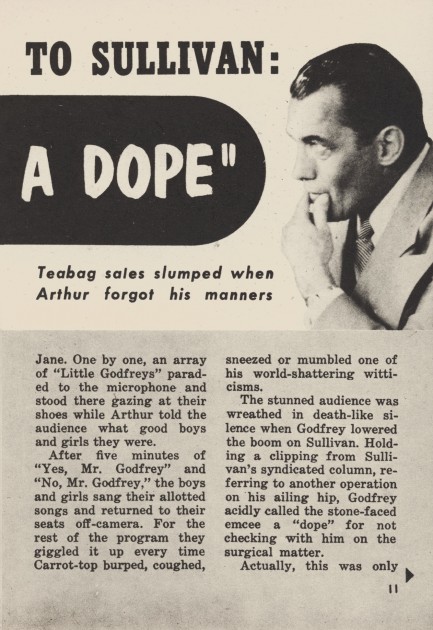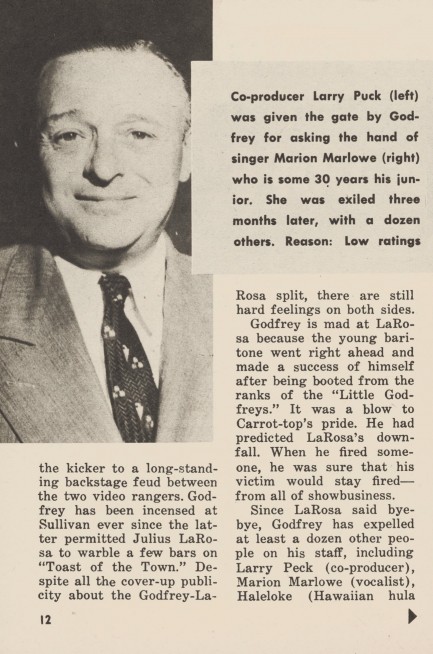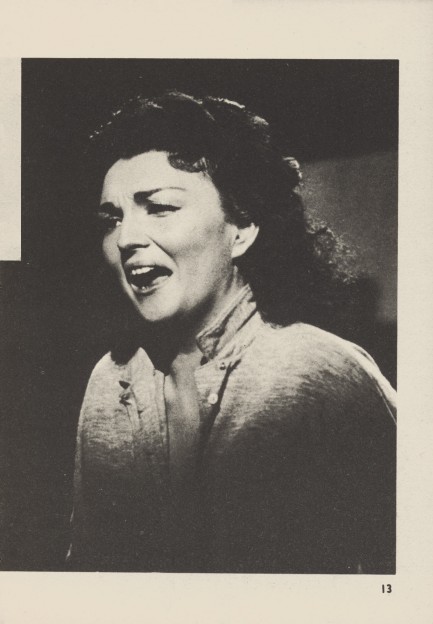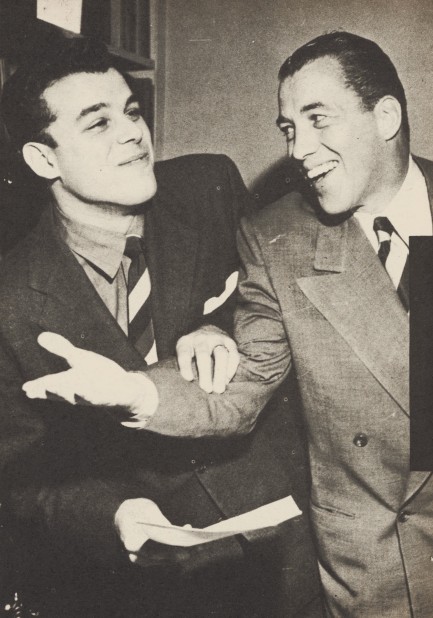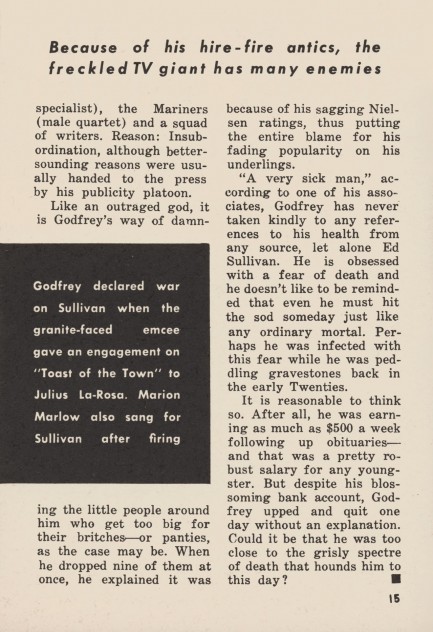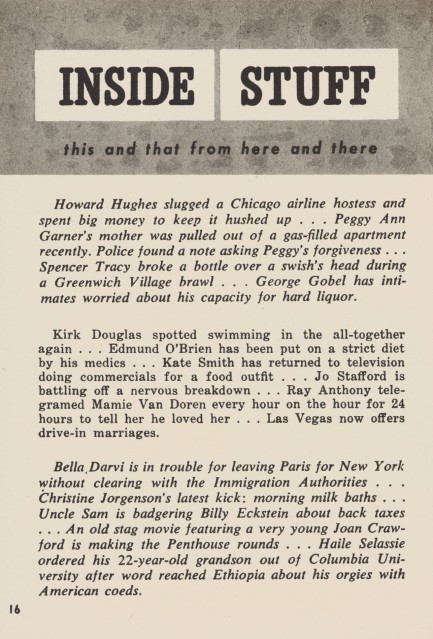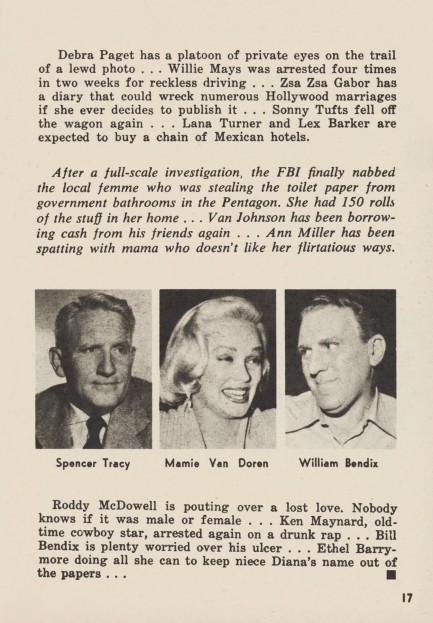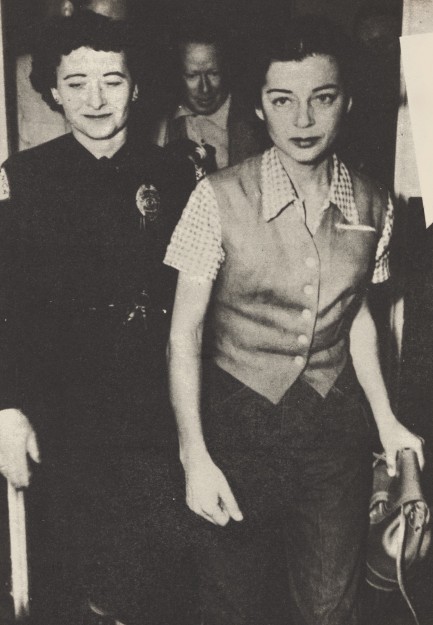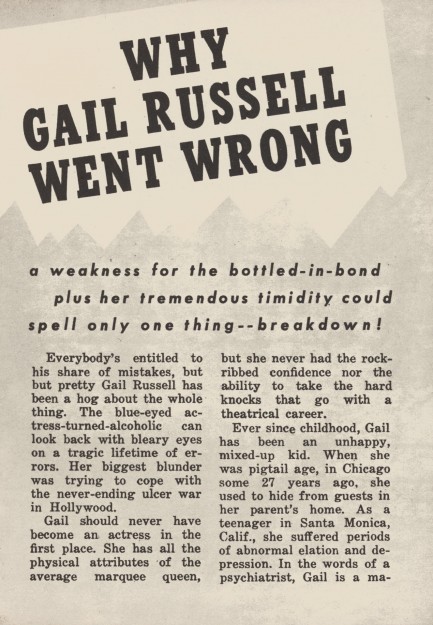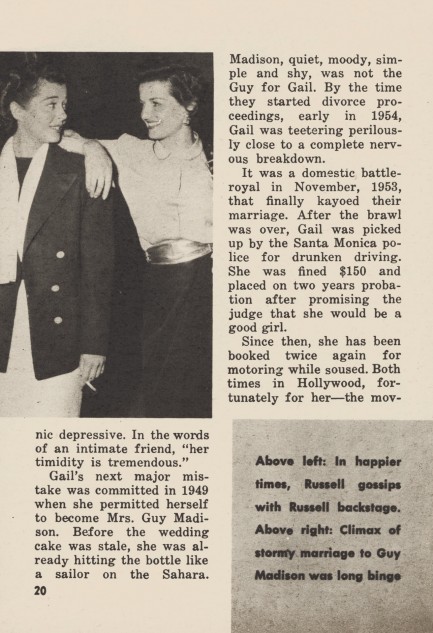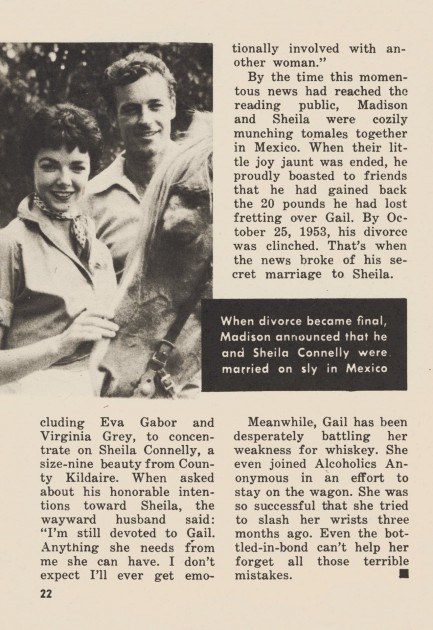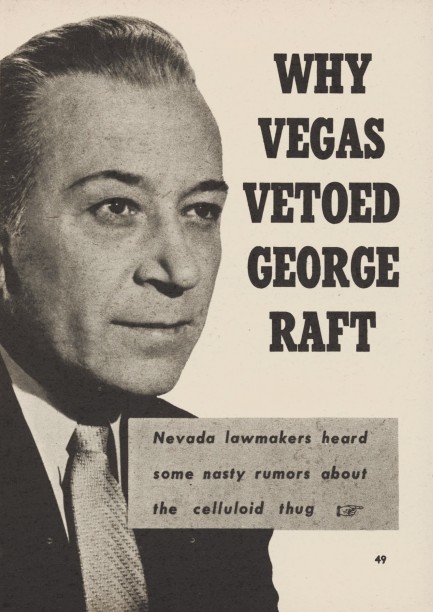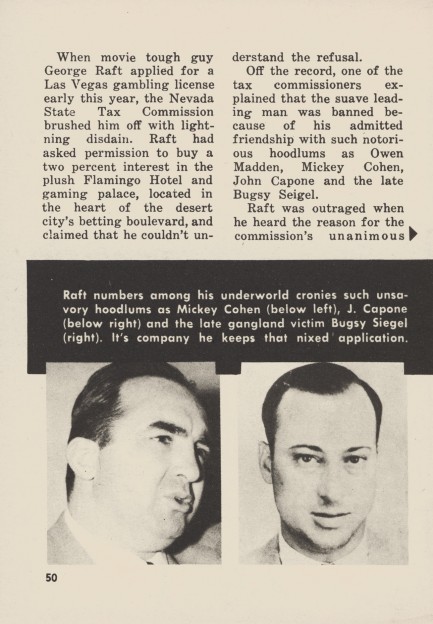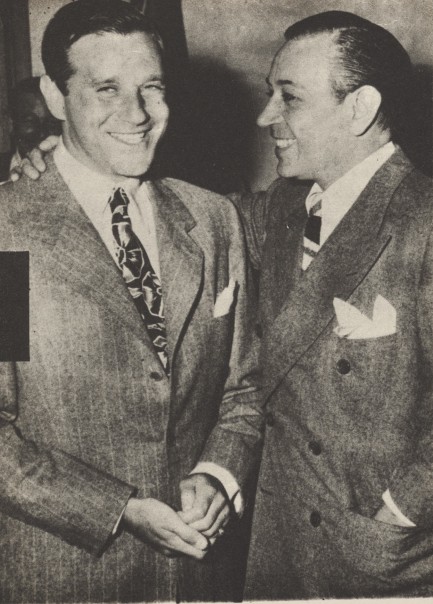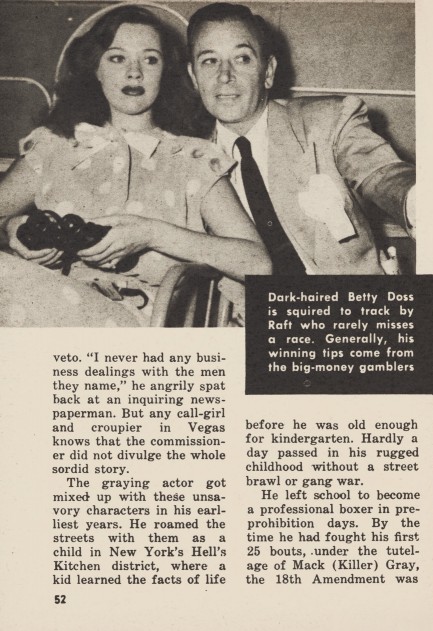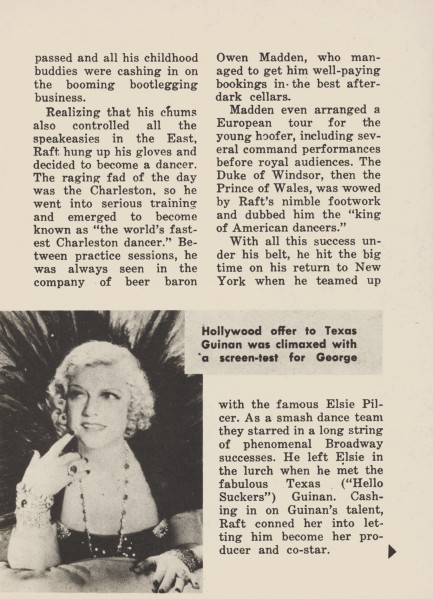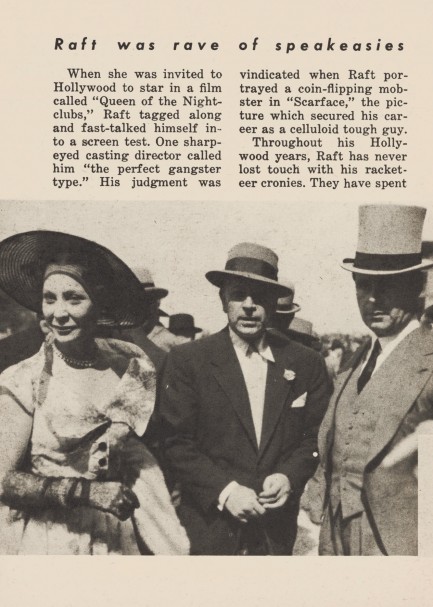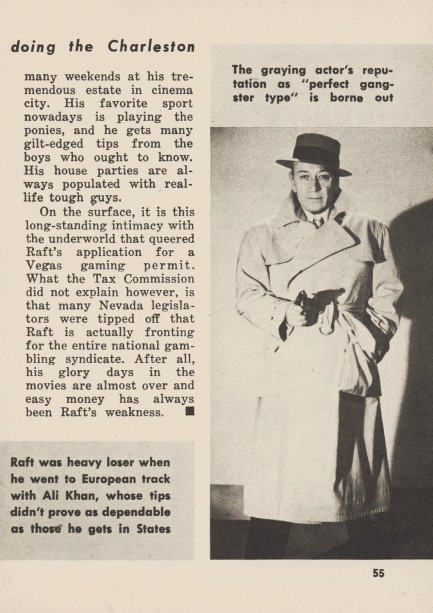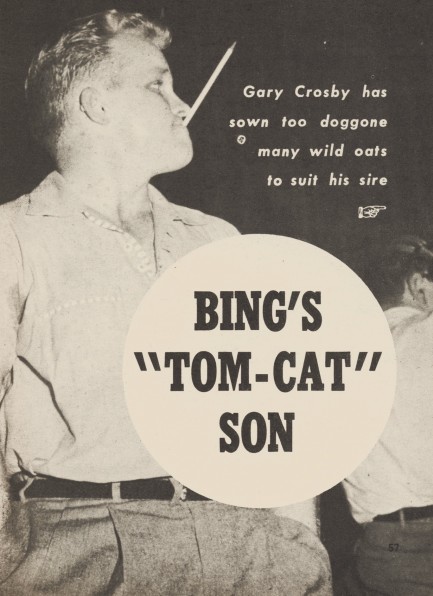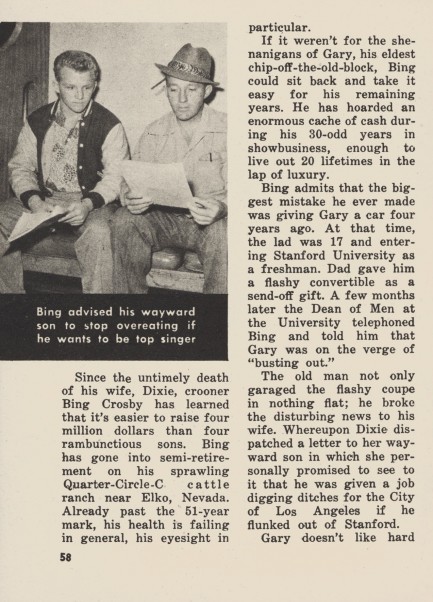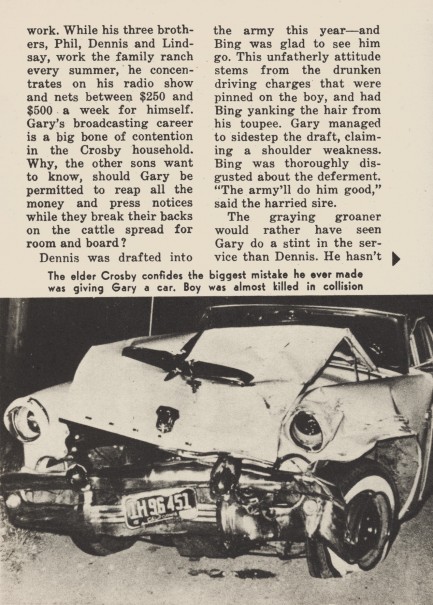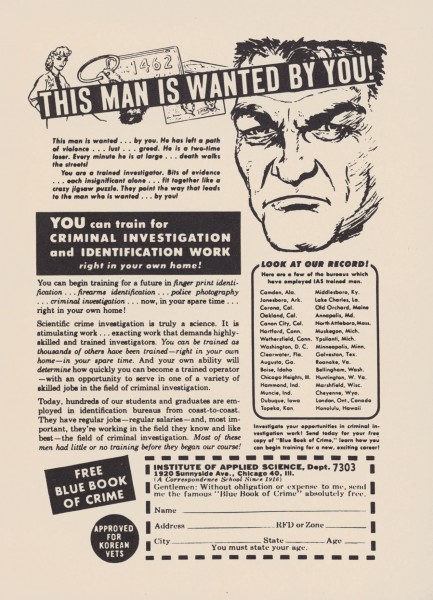 Sinatra and his band of merry men hit movie screens in streamlined form. 
In 1960 the amusing self-promotional film known as Ocean's Eleven hit cinemas with Frank Sinatra and the Rat Pack in the starring roles. Four years later the Pack—minus Joey Bishop and Peter Lawford—assembled for another crime comedy with another numerical title—Robin and the 7 Hoods, which premiered today in 1964 (and came after the Sinatra/Dean Martin vehicle 4 for Texas). You see the movie's insert style poster above. It's a period piece set in Chicago during the gangster era, and deals with Sinatra and his cohort waging a crime war against wannabe kingpin Peter Falk, along the way becoming like the Robin Hood of legend by stealing from the rich and giving to the poor.
Ocean's Eleven is a very famous movie, perhaps even a landmark, as we discussed a while back, but we didn't love it. We thought Robin and the 7 Hoods would be worse, but we have to confess we liked it better. After we forgave ourselves for such heretical thoughts, we decided it's just possible that without the entire Rat Pack to apportion screen time to the writing is actually a bit better. Have you ever seen rats fight over food? Scripts, being made of paper, are particularly fragile. Could be, too, that fewer Rat Packers meant a bit less extemporizing.
But the main improvement over Ocean's Eleven is in the ancillary casting. Barbara Rush doesn't rise, perhaps, to the level of Angie Dickinson, but casting Falk as the villain was a masterstroke. He already had that Falk thing down pat, which meant that his screen time was engaging from beginning to end. An Edward G. Robinson cameo never hurts, either. Having him open the film as an aging Chicago capo was also a nice choice. Even so, we're not going out on a limb and claiming that Robin and the 7 Hoods is exactly a good movie. But in the end, whatever its flaws, it has Sinatra. And that's always enough.                  
 Shhh! Character assassination in progress. 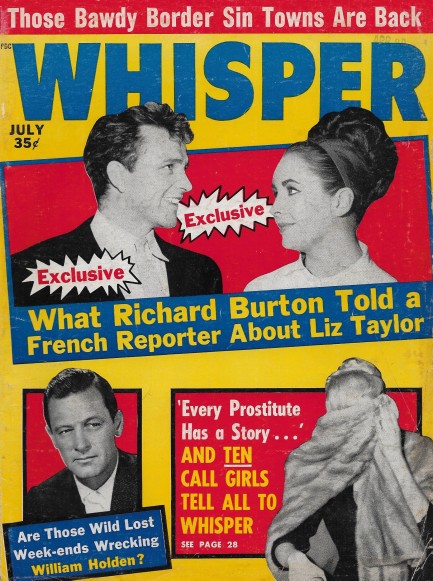 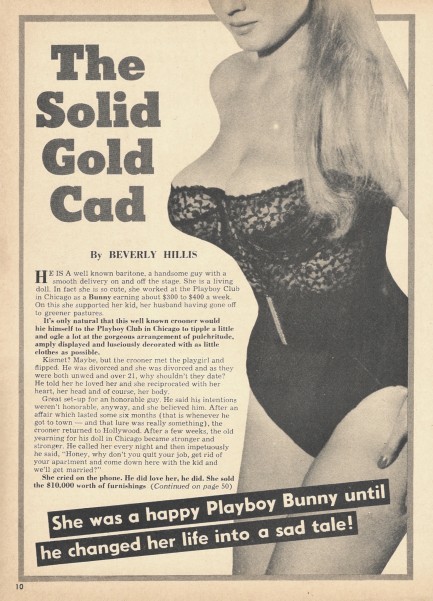 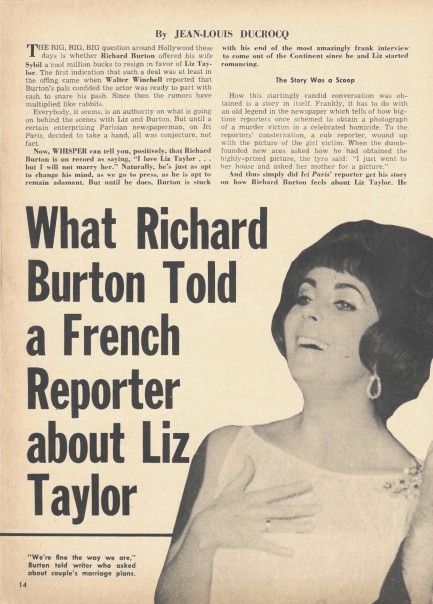 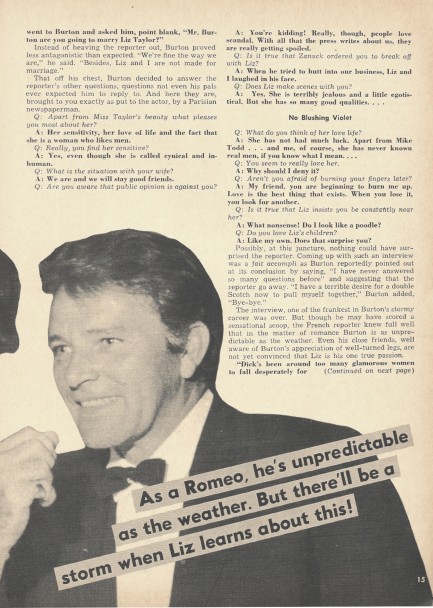 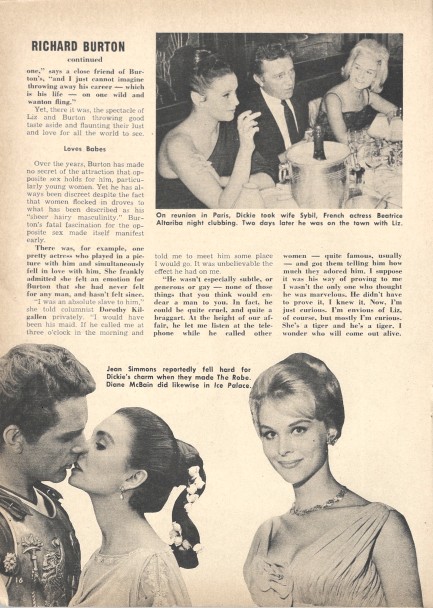 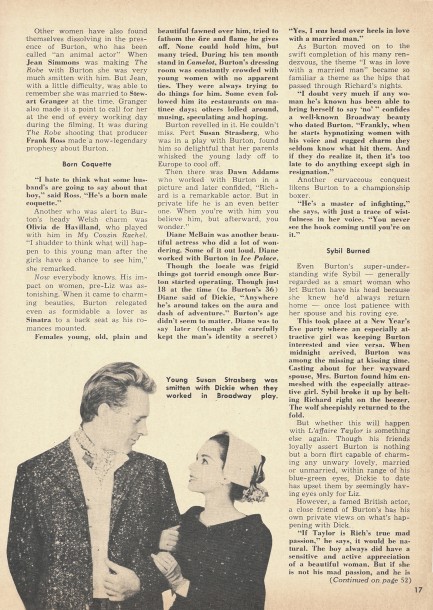 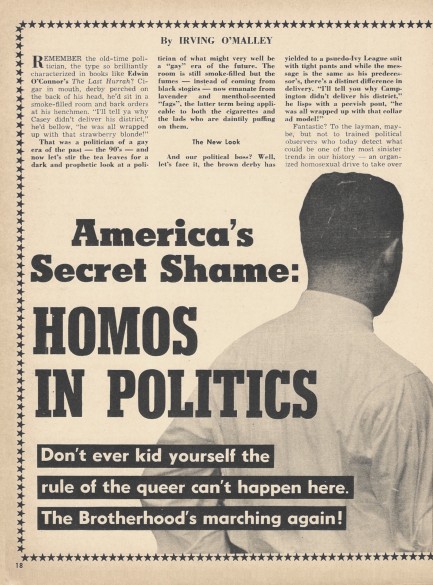 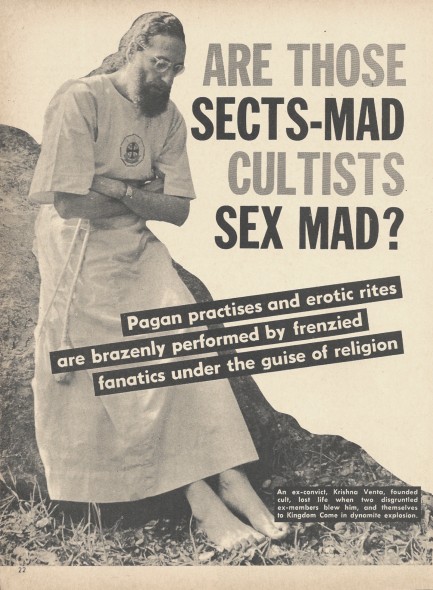 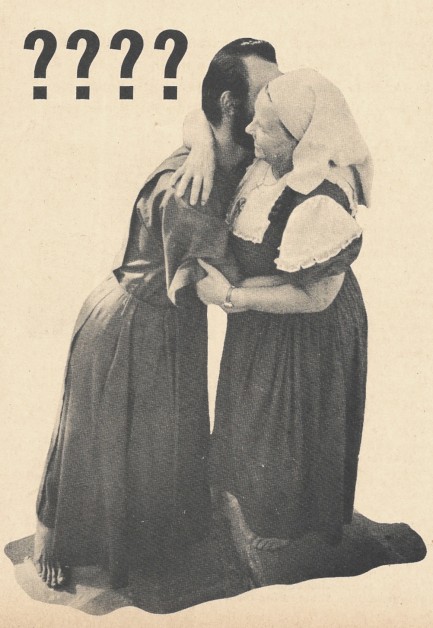  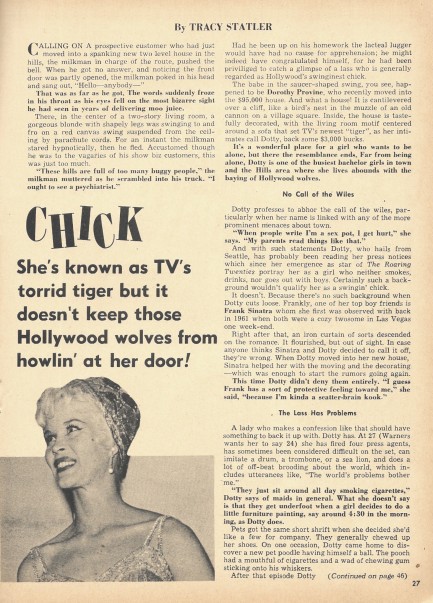 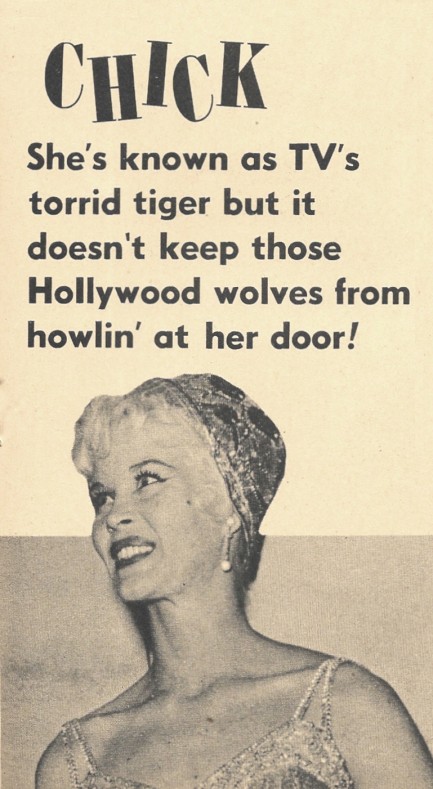 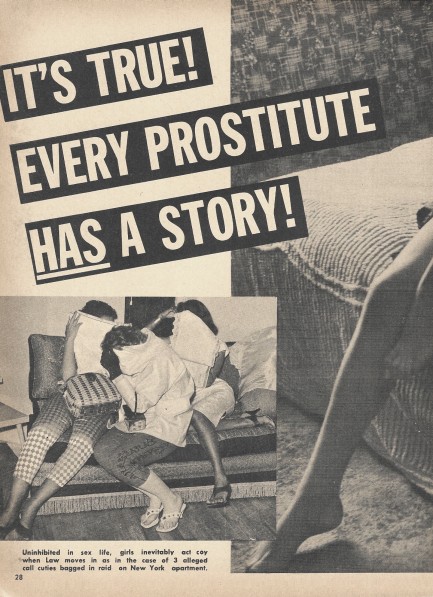 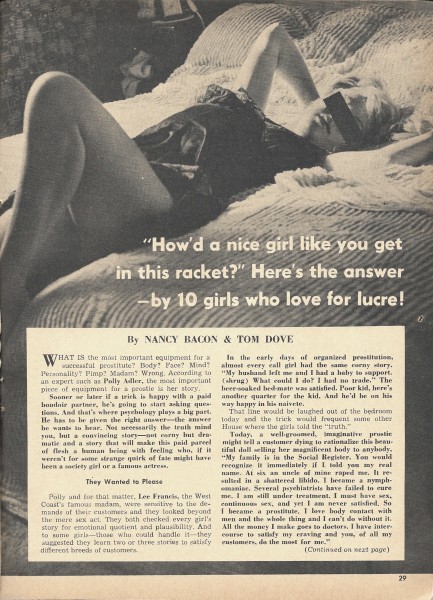 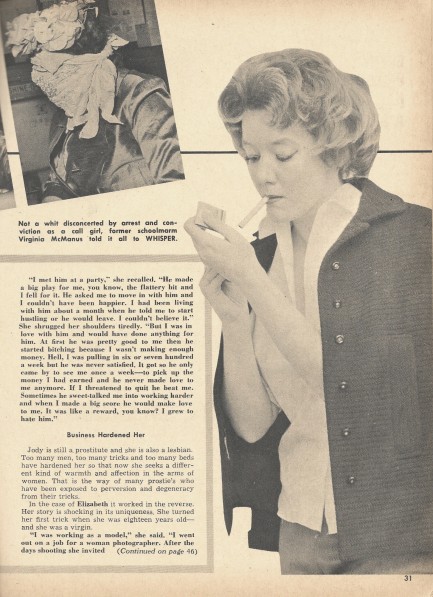 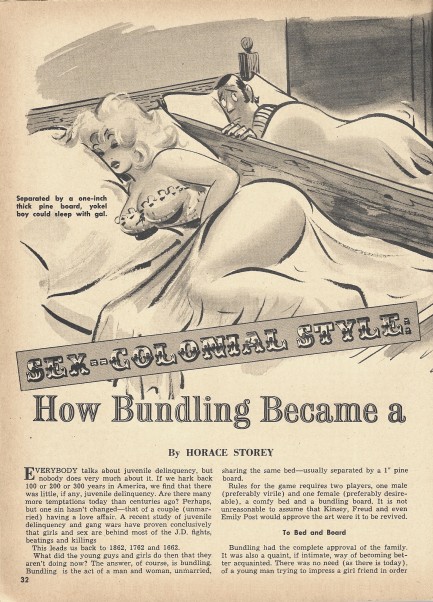 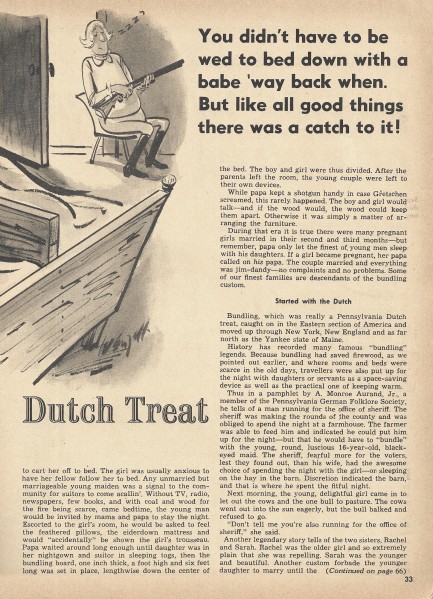 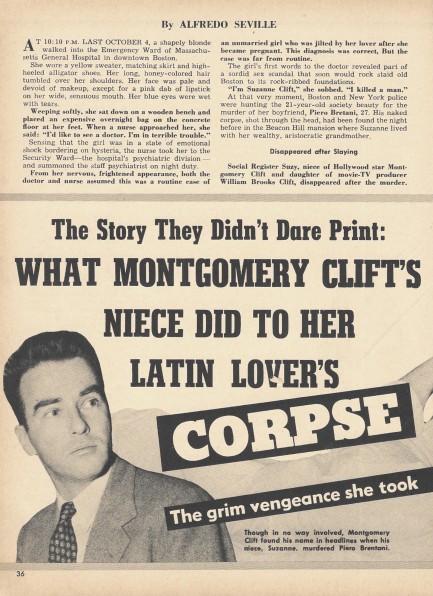 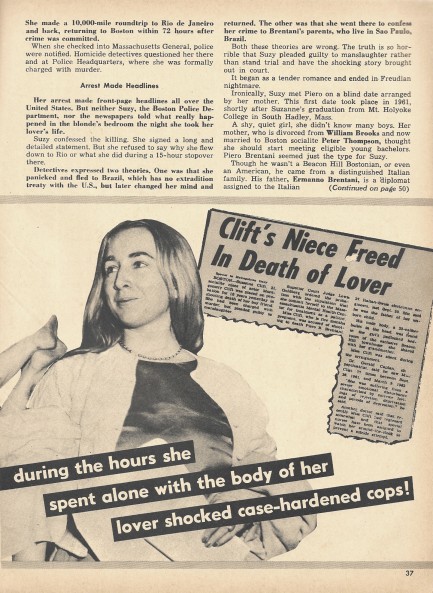 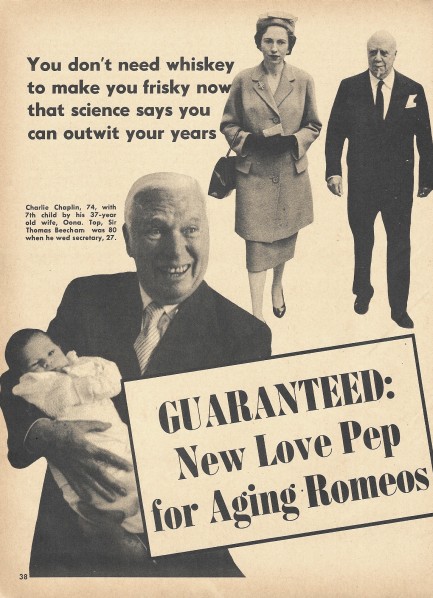 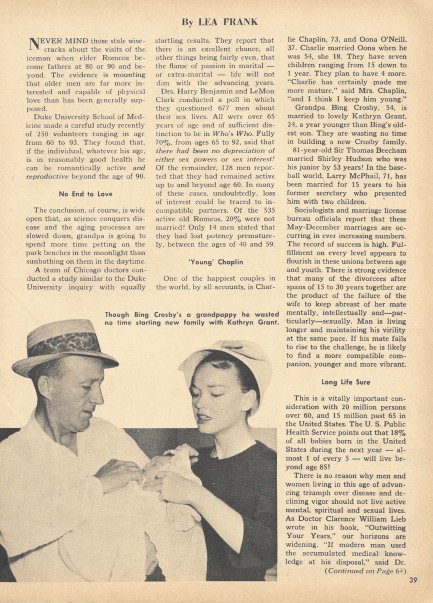 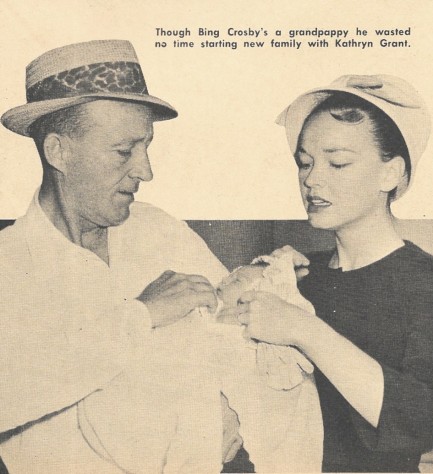 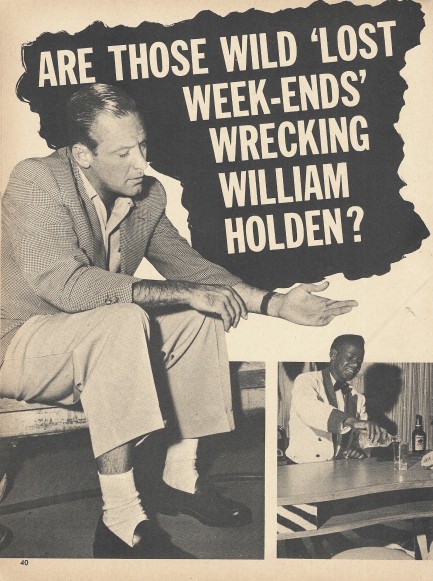 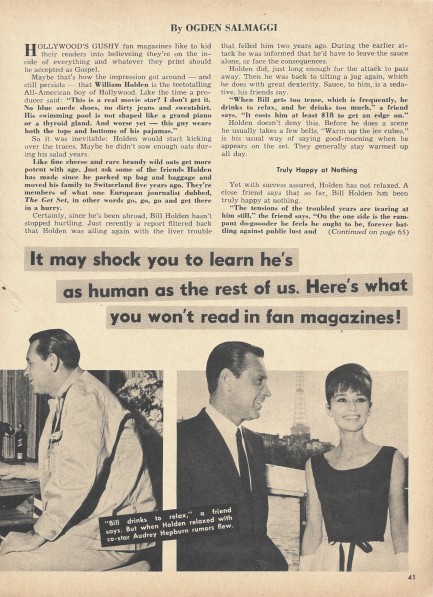 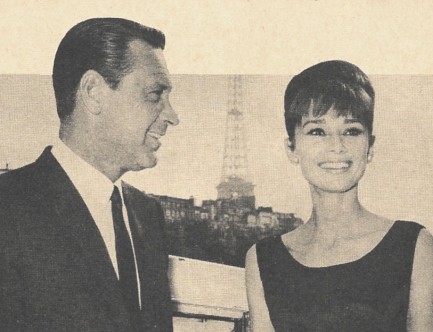 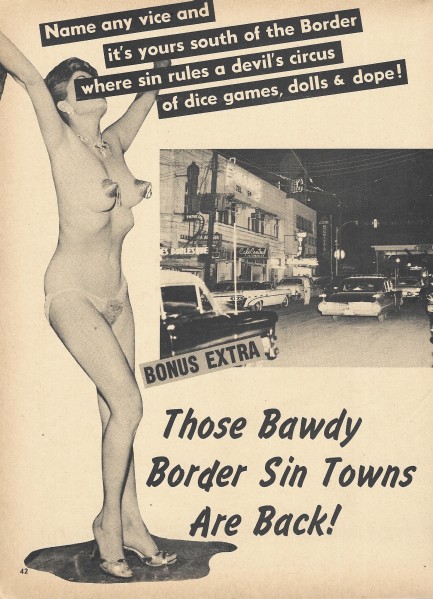 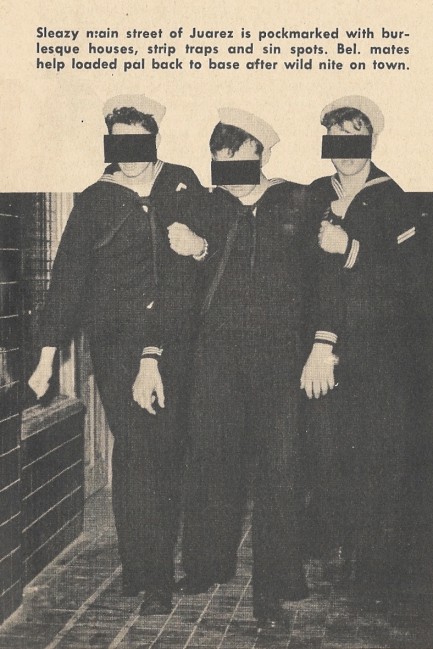
Above are some scans from an issue of the tabloid Whisper published this month in 1963. We've shared hundreds of tabloids over the years, and we always marvel at them. How would you describe the compulsive need to know what's going on in other people's lives? Is it a from of comparison? Is it schadenfreude? Is it envy? The American Psychological Association calls it natural behavior stemming from the fact that humans are social animals curious about what's going on around them. It's why, according to the APA, we gossip about friends and neighbors. Your first thought, in terms of tabloids, might be that celebrities are neither friends nor neighbors. However, the headshrinkers tell us they are. People create parasocial relationships with celebrities, and thus the same dynamic exists. And nobody is immune. Condescending remarks about celebrity gossip are liable to come from people inordinately involved with their favorite baseball player, acclaimed author, or television talking head. Some people let celebrity fashionistas suggest what they should wear, while others who consider themselves above such silliness let television pundits tell them who to hate.
We find mid-century tabloids incredibly interesting, even if everybody being gossiped about is long departed. The robust sales of tabloids on auction sites seems to confirm that we aren't alone. In this issue Whisper digs dirt on numerous titans of celebritydom—Elizabeth Taylor, Richard Burton, Audrey Hepburn, Bing Crosby, Charlie Chaplin, and others. Editors also let their bigot flags fly by predicting “one of the most sinister trends in history—an organized homosexual drive” to take over the U.S. That one still sells in some quarters. We'll have more from Whisper soon.
 Tabloid offers pills, thrills, and various painful aches. 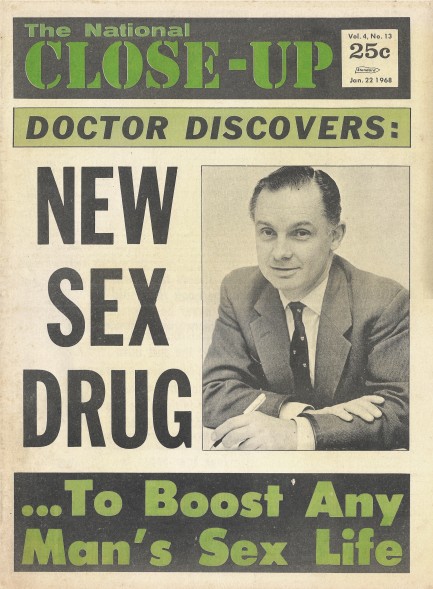 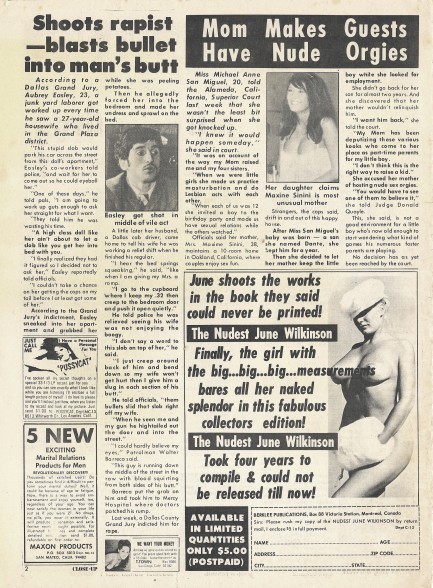 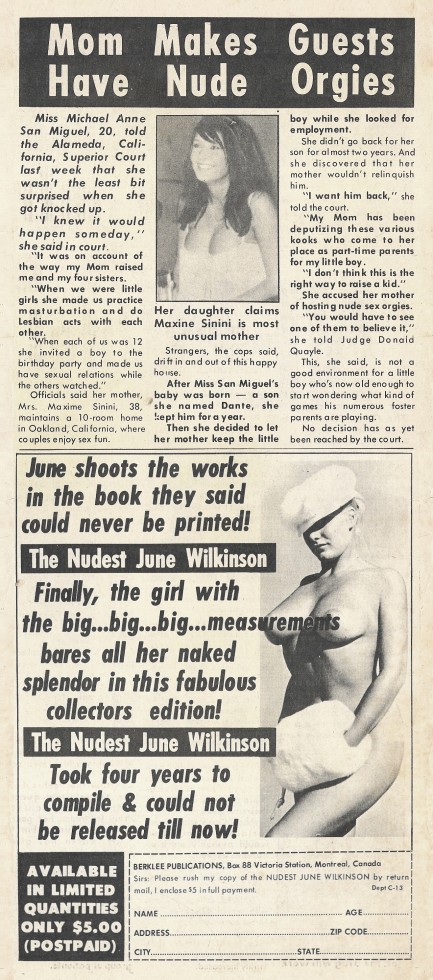 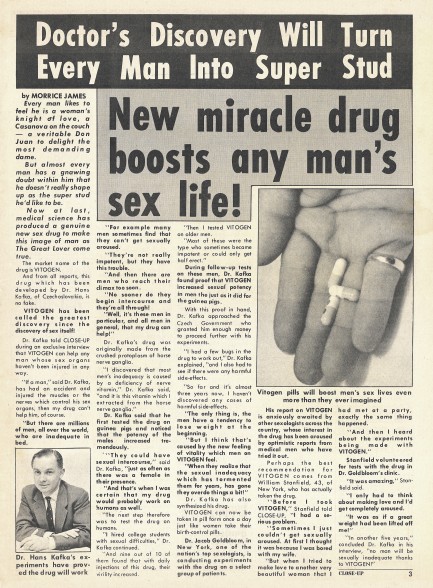 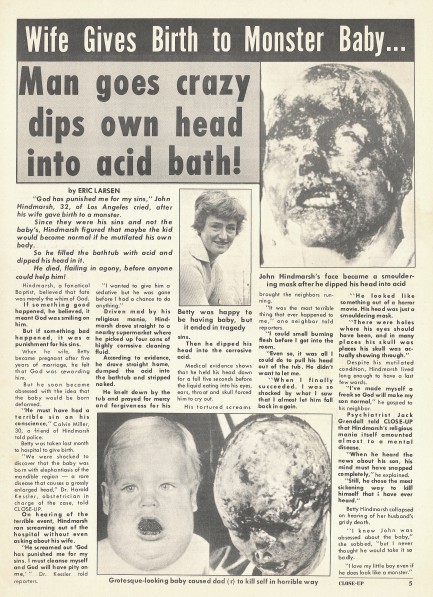 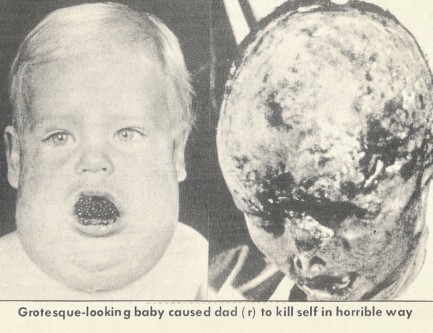 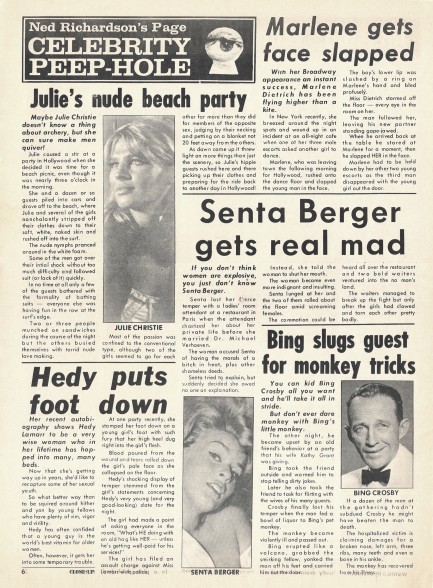 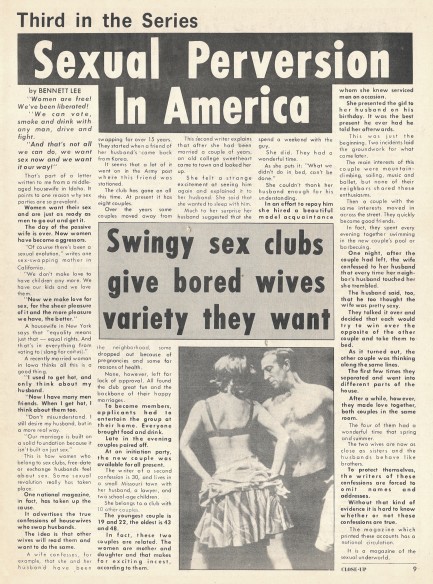  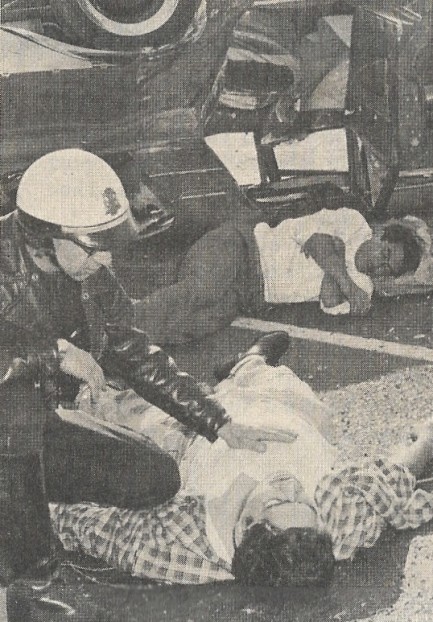  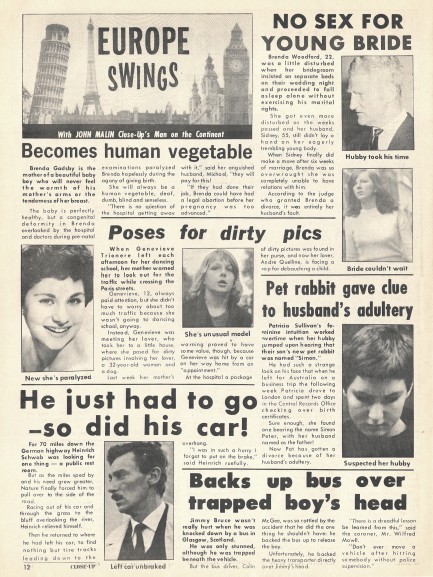 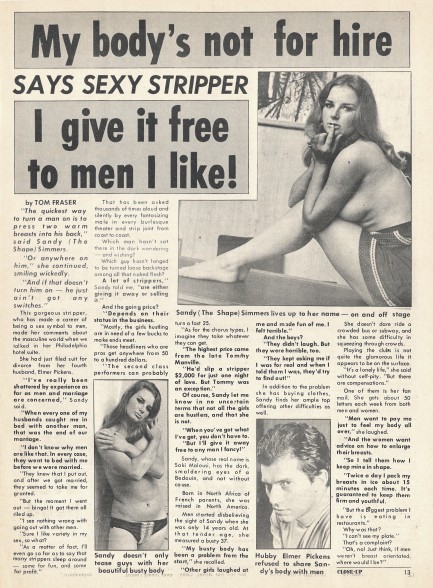 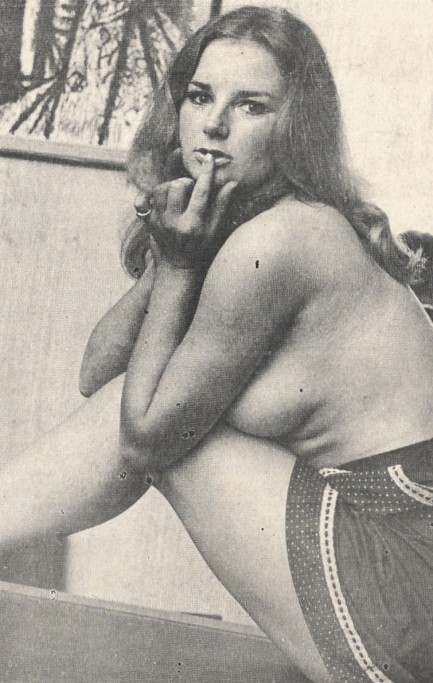 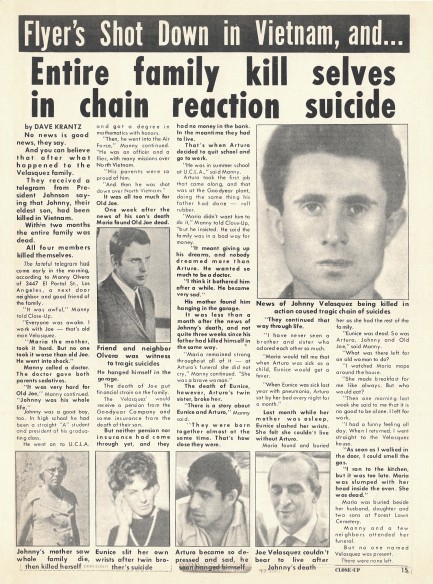 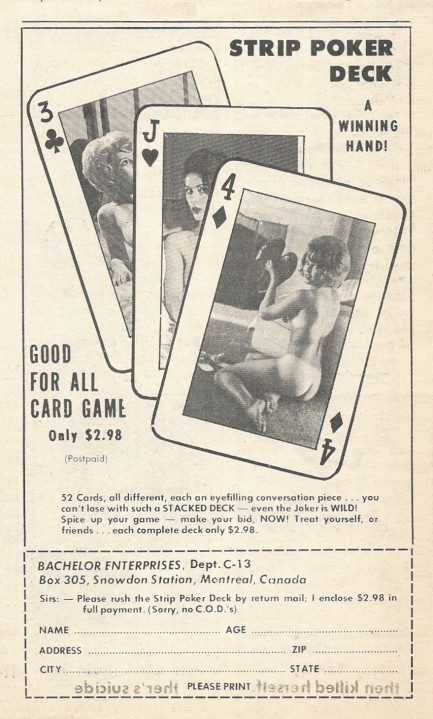 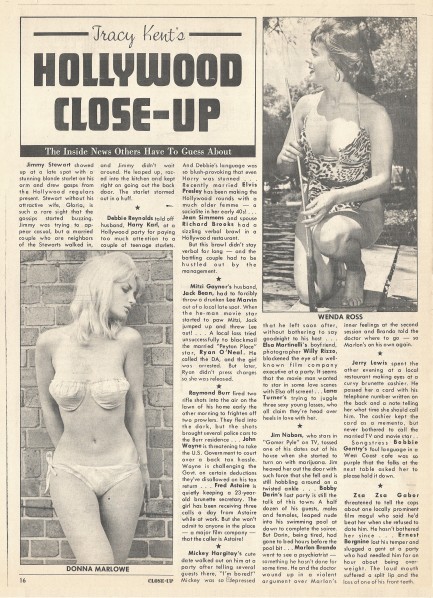 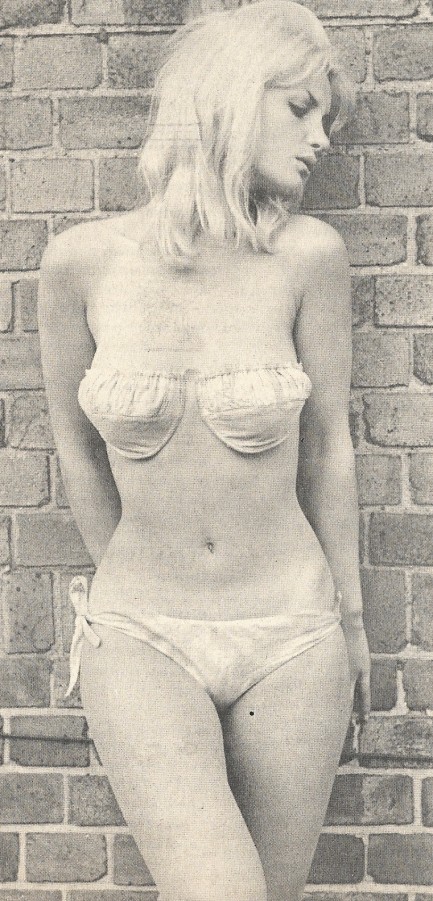 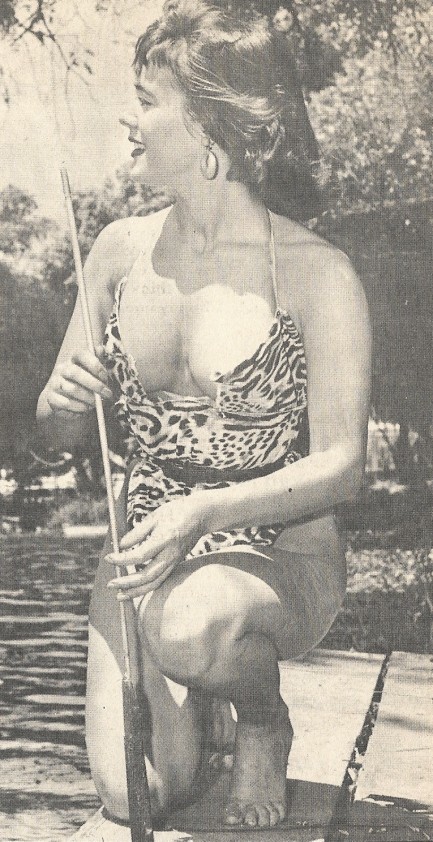 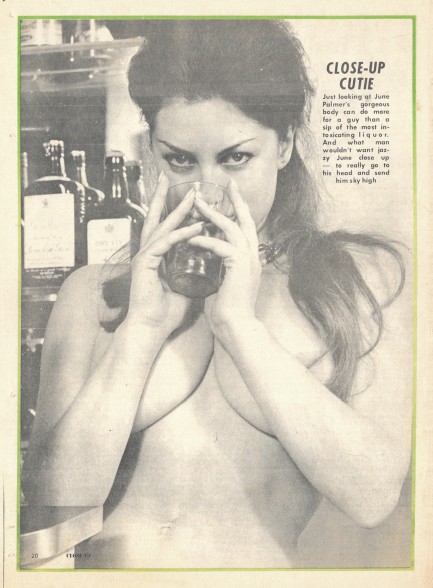
Above: assorted pages from an issue of National Close-Up published today in 1968, with sex pills called vitogen, sexual perversion, sex parties, and sex swingers, then conversely, mass suicides, a monster baby, an acid burn victim, car crash deaths, and all that is terrible and painful in the world. Somewhere between those extremes are celebrities, including Julie Christie, Bing Crosby, Donna Marlowe again (seems she was a tabloid staple in ’68), Playboy centerfold Sue Williams (in the advertisement for strip poker cards), and, just above, the lovely June Palmer.
 Proceed with caution—Nazi crossing. 
Marjorie Reynolds gives her best transfixed look in this promo image made for her 1944 film noir Ministry of Fear. The swastika leaves no doubt who the villains are. They take over a New York City brownstone and use it as a base of operations for various dastardly doings. The film is uneven despite being helmed by the legendary Fritz Lang. Reynolds, who also acted under her real name Marjorie Goodspeed, as well as Marjorie Moore, appeared in dozens of movies but wasn't quite what you'd call a star. Her signature moment probably came when she sang the song, “White Christmas,” in the 1942 film Holiday Inn. She performed it twice—once solo, and once as a duet with Bing Crosby. She didn't appear in many crime movies or thrillers, so we probably won't see her here again, but this is quite a shot to go out on. You can read what we wrote about Ministry of Fear here.
 They always get the best seat in the house.
Below, a collection of film stars, in Hollywood and other places, looking large and in charge while seated in director's chairs. In panel three the actress in the “Bonanza's guest” chair is Karen Sharpe. We don't expect you'll need help with the others, but if so our keywords list them in order.
 Jeanne Carmen shows off her golf form. Her playing partners get fairway wood. 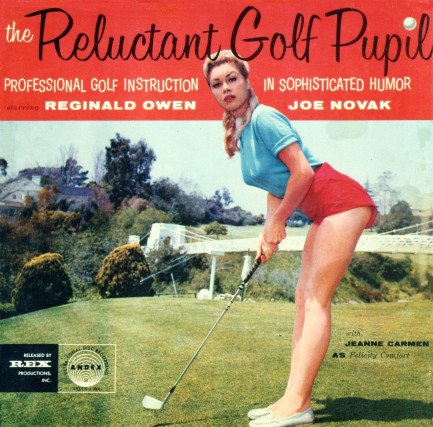 
These items show Jeanne Carmen, model and b-movie actress, fronting The Reluctant Golf Pupil and Par Golf in 8 Steps, albums of golf instruction by Joe Novak punctuated with comic interjections from Reginald Owen. Though these seem like different albums, they're the same, just issued a year apart. Inside both you get liner notes written (allegedly) by Bing Crosby and Bob Hope, who were known to spend time on the links. Carmen spent time on the fairways as well. She was nationally known as a trick-shot golfer, a skill she had picked up starting a decade earlier. She toured the U.S. pulling stunts such as using rubber shafted clubs and nailing drives off tees clenched between the teeth of supine (and terrified) male volunteers. So while these images appear often online, we've rarely seen it noted that Carmen was an appropriate choice for a cover star. There's more to her story, including chapters involving gangster Johnny Roselli, friendships with the Kennedys and Marilyn Monroe, and hook-ups with Elvis Presley and (of course) Frank Sinatra. We may get back to her later. In the meantime, if you want to see a really nice swing check out Ana Berthe Lethe on the course here.

 Who, this jerk? I just work with him. 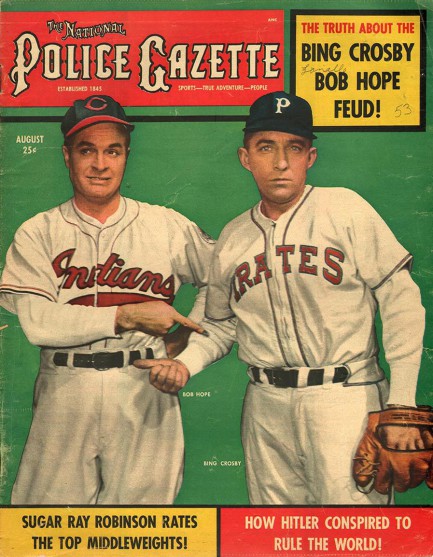
This awesome August 1953 National Police Gazette featuring Bob Hope and Bing Crosby cut-and-pasted into baseball uniforms came from the website Ephemera Forever, which we had no idea existed until today. It’s a nice spot, and claims to have more than 22,000 rare items. The prices? Well, those are high. But you can always browse, at least. As far as the Hope/Crosby feud mentioned on the cover, different sources make claims of everything from full blown mutual hatred to the two using rumors of discord as a publicity stunt. However Hope did once reveal that Crosby never once invited him and his wife over for dinner, which seems like a pretty strong clue. See much more from Police Gazette in our tabloid index.
 Good things come in small packages. 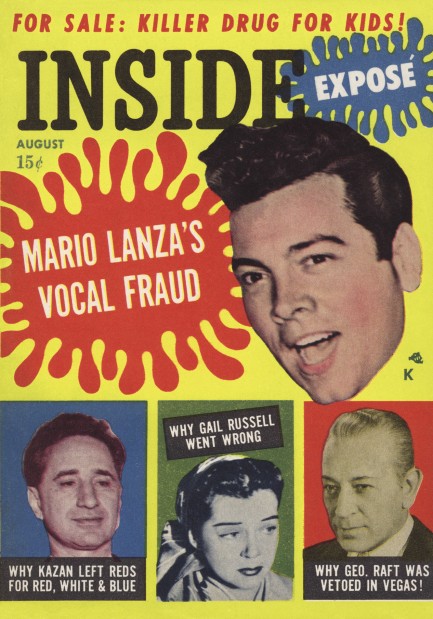
Here’s a new addition to the ever expanding roster of mid-century tabloids on Pulp Intl.—Inside, which we mentioned in relation to our post on Liberace a while ago. Inside was a pocket-sized magazine that came to newsstands in 1955 thanks to New York City’s Dodshaw Publishing Corporation. It seems to have lasted only three years. This August 1955 issue, which was originally scanned and uploaded by Darwin’s Scans, features singer Mario Lanza, filmmaker Elia Kazan, and actors George Raft and Gail Russell, among other subjects. Because the print in a pocket publication is readable when scanned and enlarged, we’re going to let you check out the stories yourself. You can read a bit more about Inside here. Enjoy.
 Imprisoned by the chains of love. 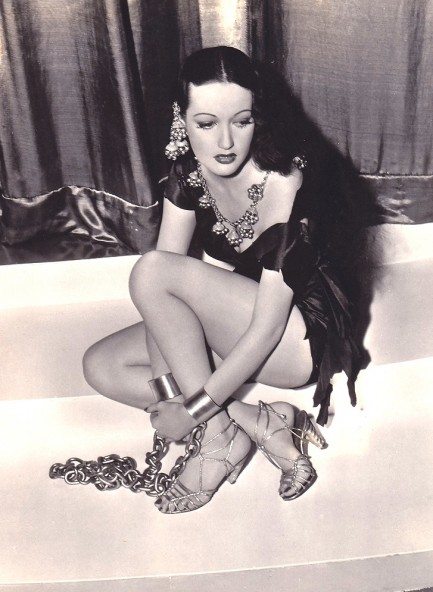
Promo photo of New Orleans-born actress Dorothy Lamour, née Mary Leta Dorothy Slaton, who made many films but is remembered for playing opposite Bob Hope and Bing Crosby in seven zany Road movies. This image was shot during the making of Road to Zanzibar, 1941.

|
 |

The headlines that mattered yesteryear.
2003—Hope Dies
Film legend Bob Hope dies of pneumonia two months after celebrating his 100th birthday. 1945—Churchill Given the Sack
In spite of admiring Winston Churchill as a great wartime leader, Britons elect
Clement Attlee the nation's new prime minister in a sweeping victory for the Labour Party over the Conservatives. 1952—Evita Peron Dies
Eva Duarte de Peron, aka Evita, wife of the president of the Argentine Republic, dies from cancer at age 33. Evita had brought the working classes into a position of political power never witnessed before, but was hated by the nation's powerful military class. She is lain to rest in Milan, Italy in a secret grave under a nun's name, but is eventually returned to Argentina for reburial beside her husband in 1974. 1943—Mussolini Calls It Quits
Italian dictator Benito Mussolini steps down as head of the armed forces and the government. It soon becomes clear that Il Duce did not relinquish power voluntarily, but was forced to resign after former Fascist colleagues turned against him. He is later installed by Germany as leader of the Italian Social Republic in the north of the country, but is killed by partisans in 1945.
|

|
|

It's easy. We have an uploader that makes it a snap. Use it to submit your art, text, header, and subhead. Your post can be funny, serious, or anything in between, as long as it's vintage pulp. You'll get a byline and experience the fleeting pride of free authorship. We'll edit your post for typos, but the rest is up to you. Click here to give us your best shot.

|
|





![]()


































































